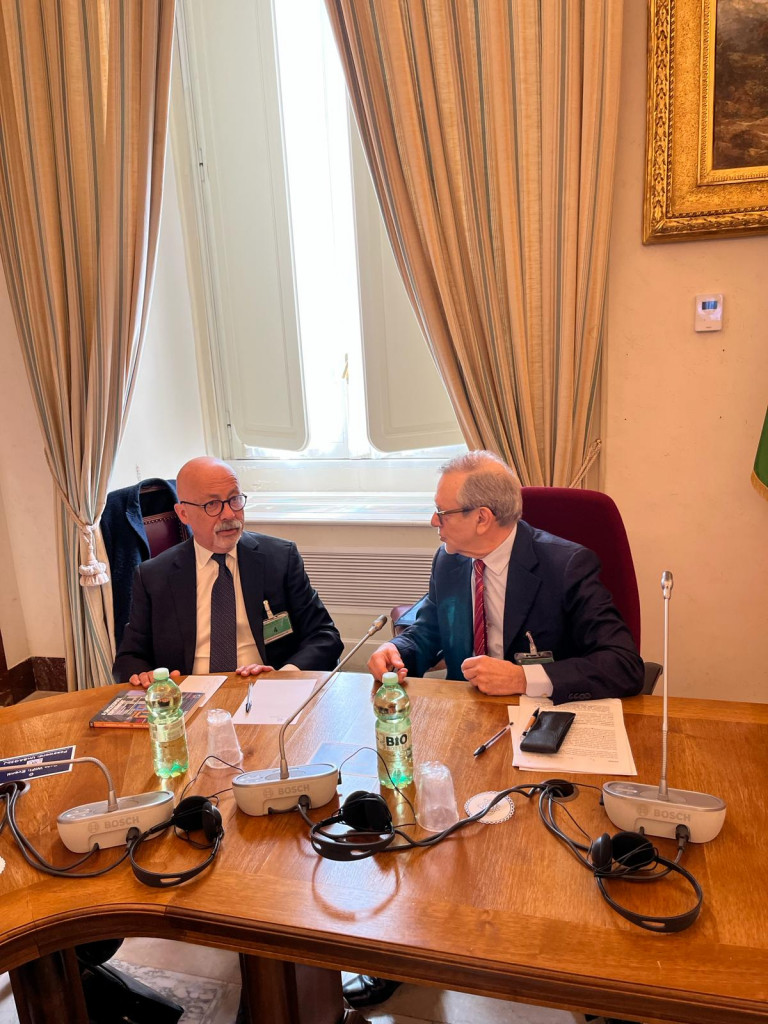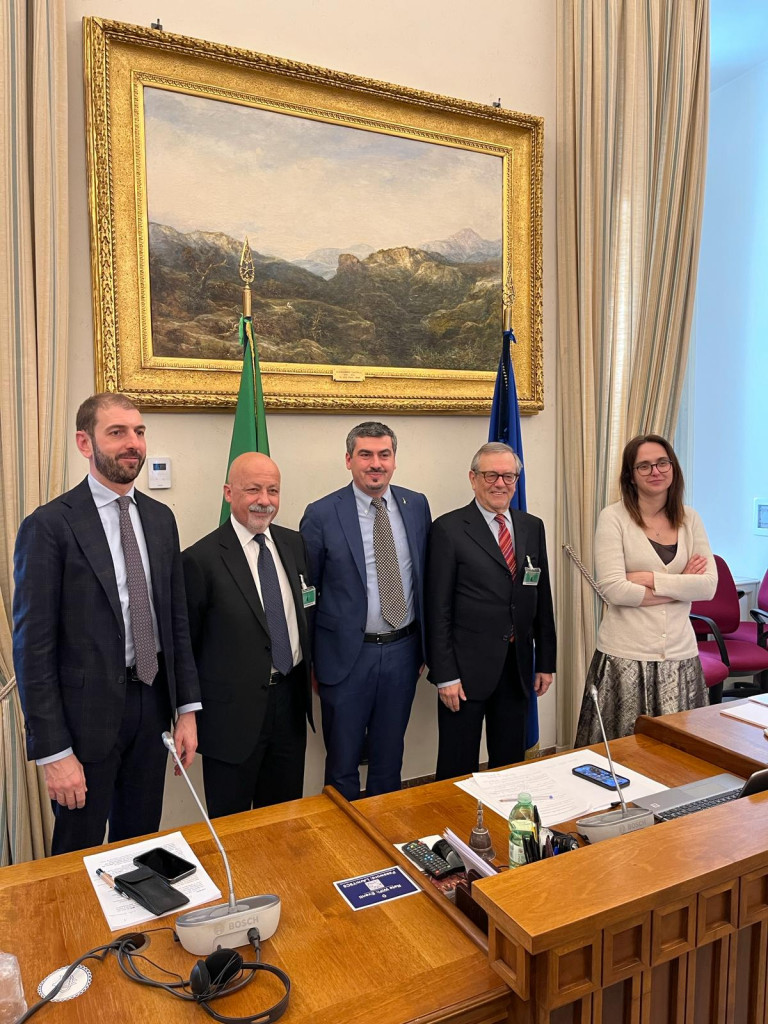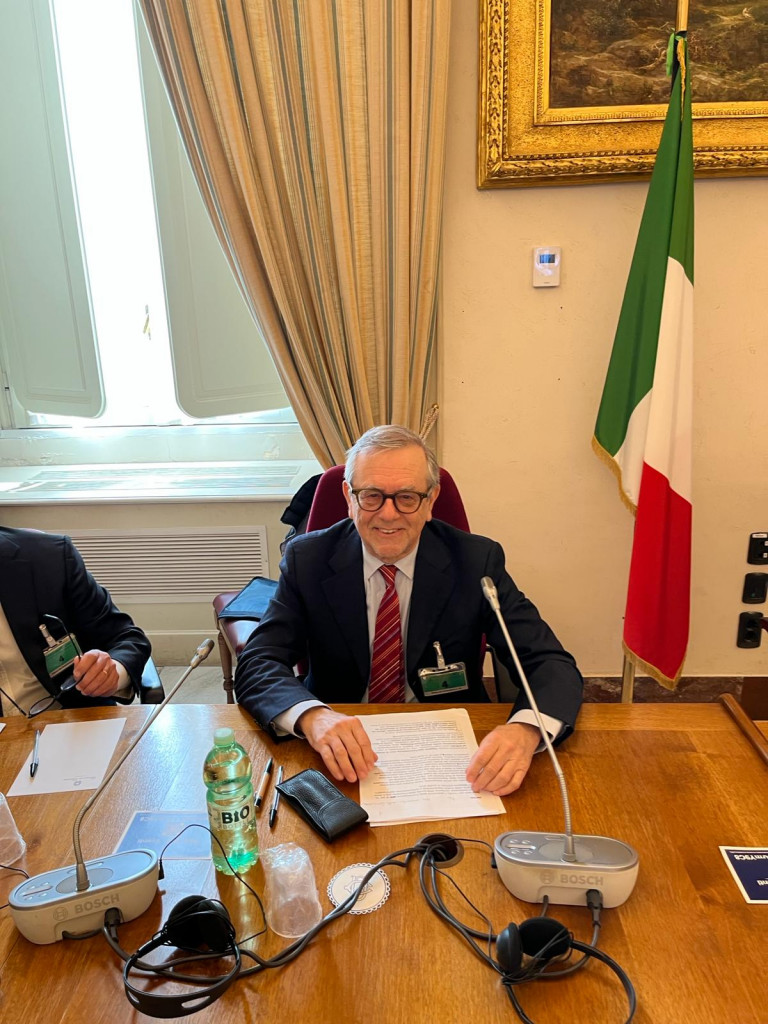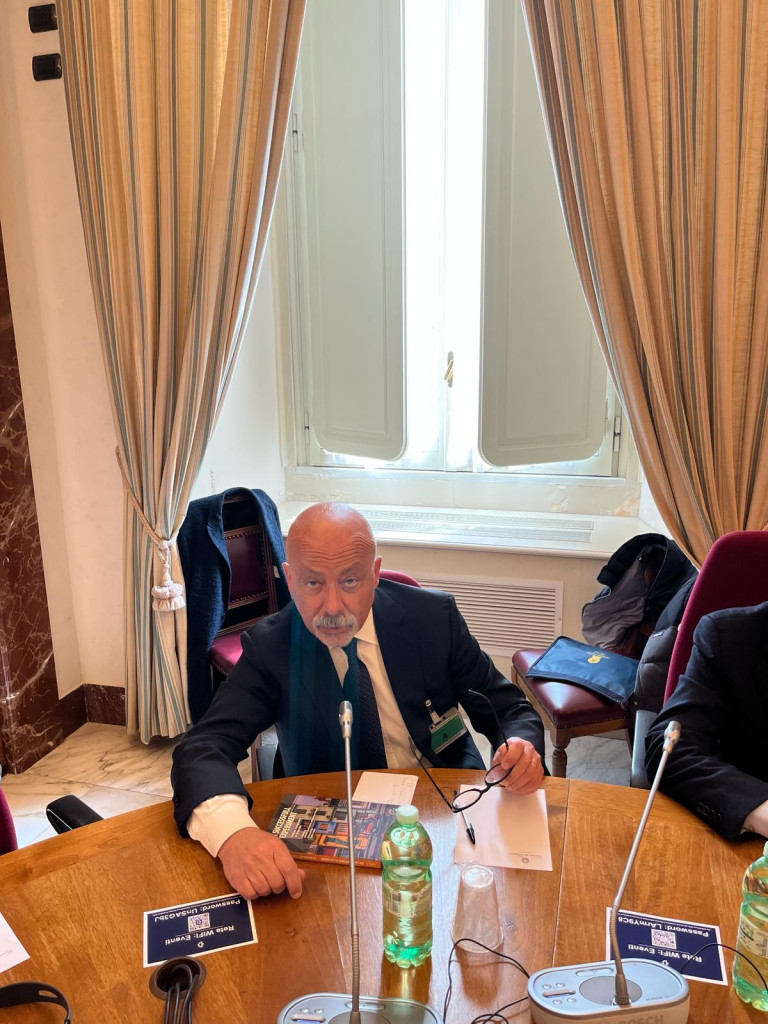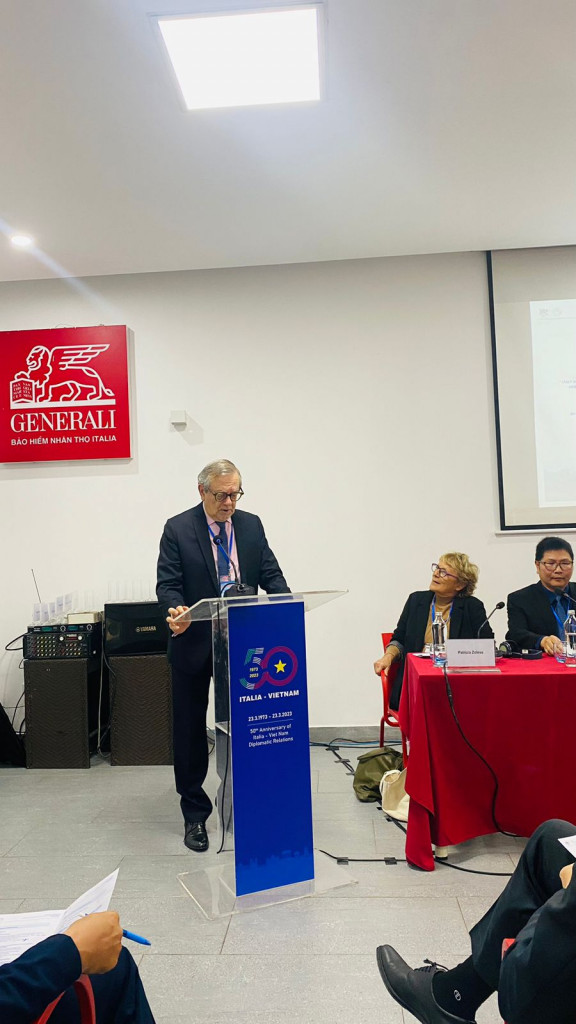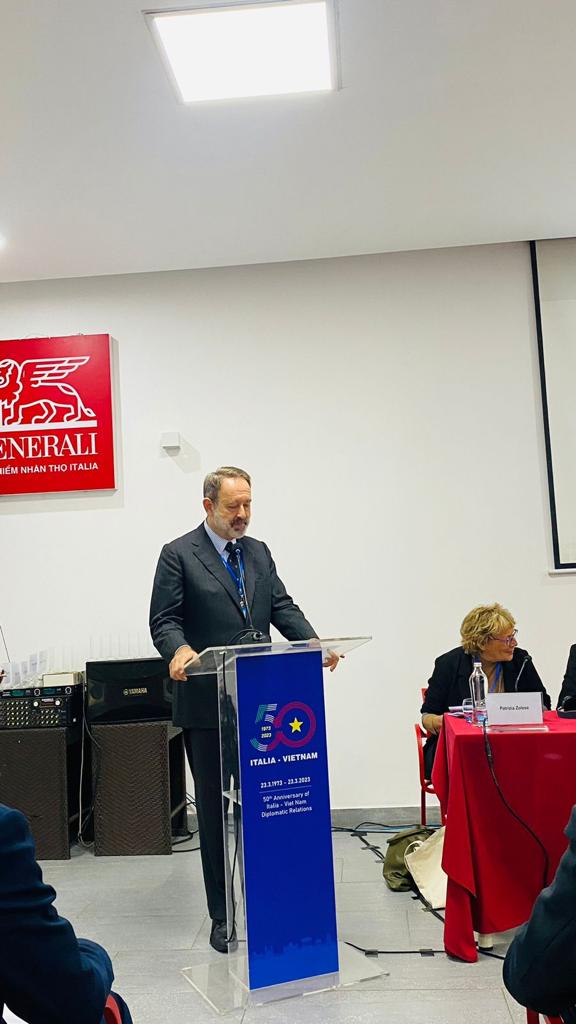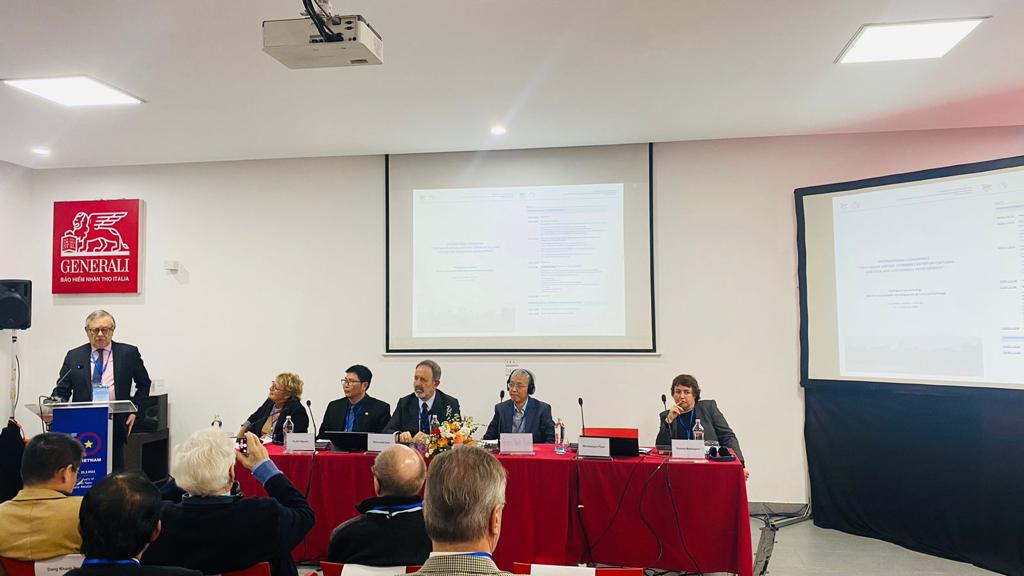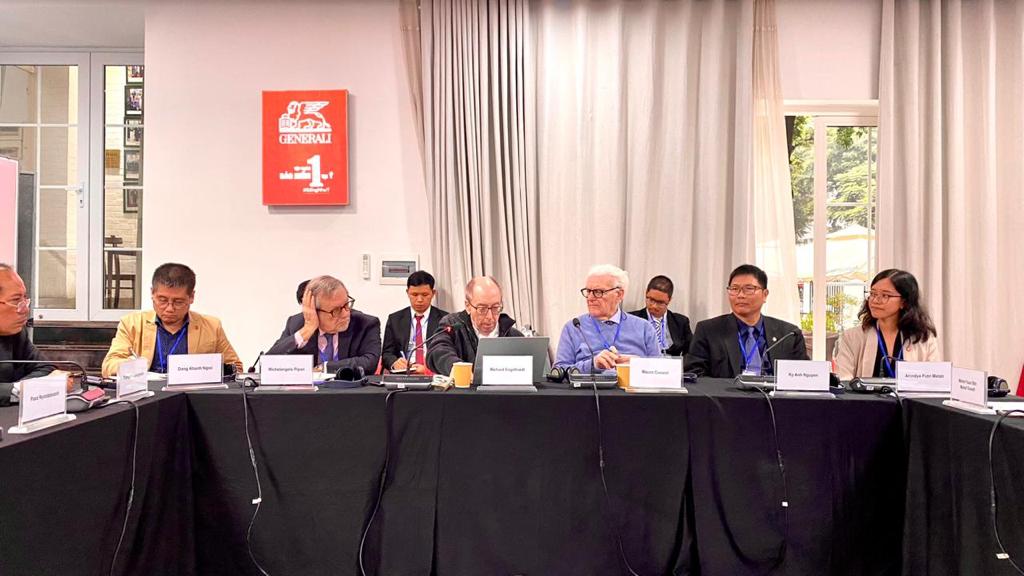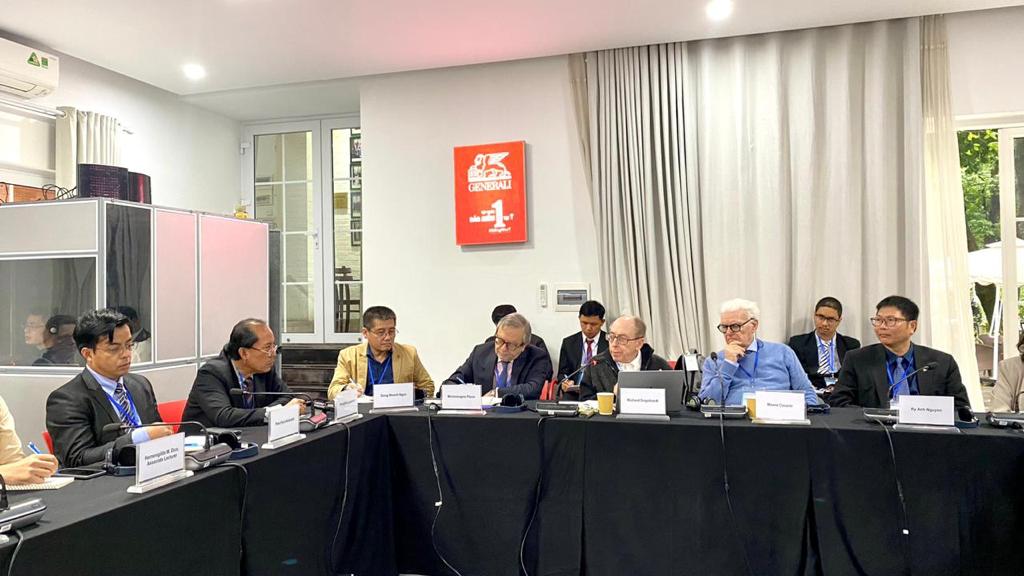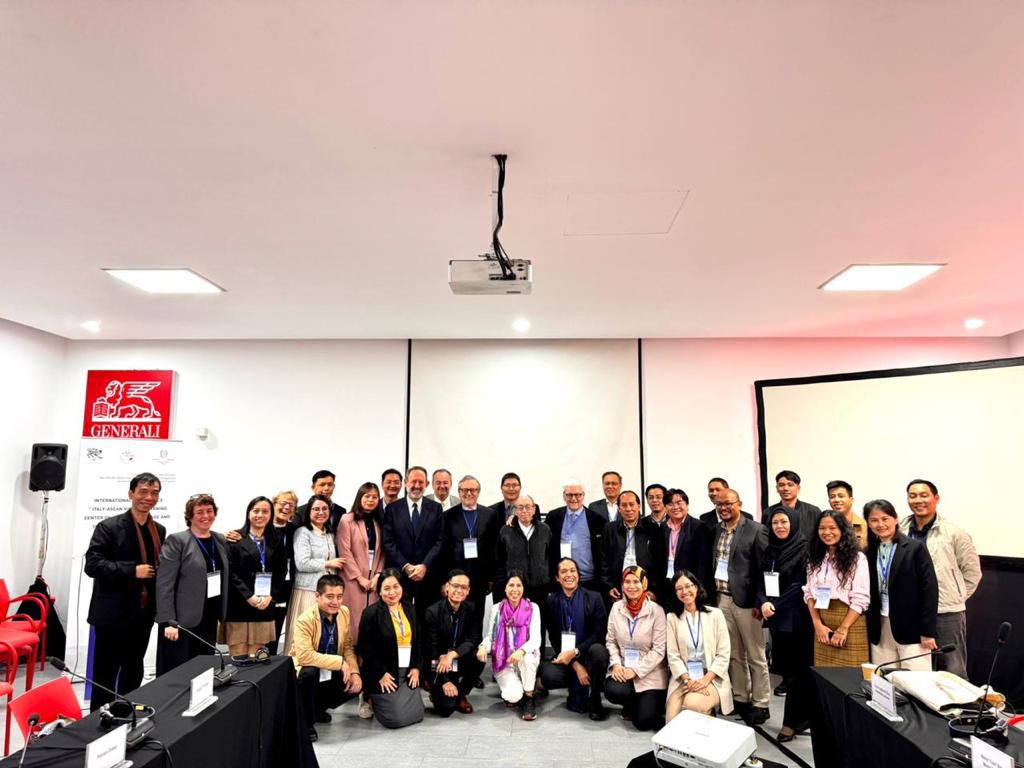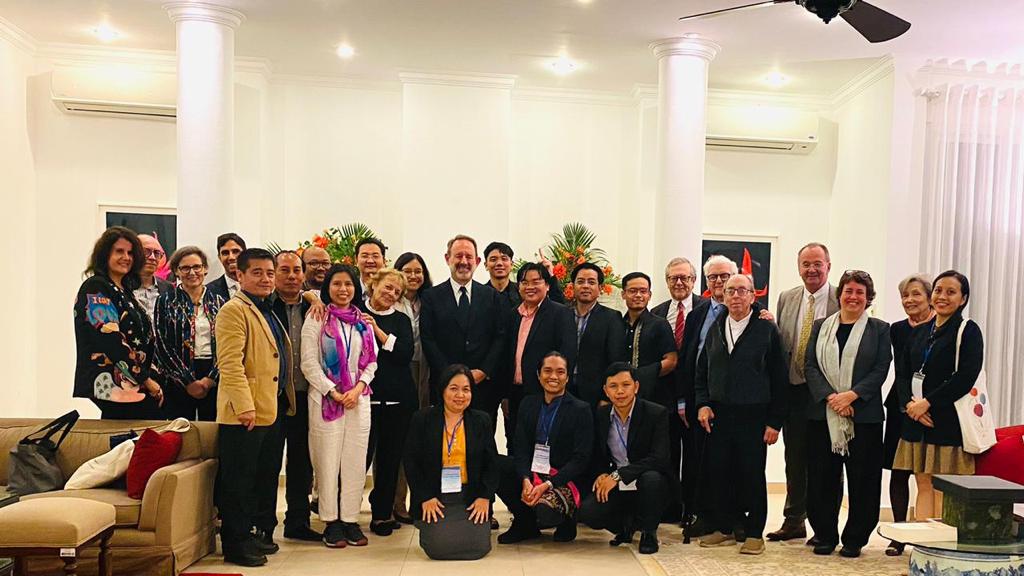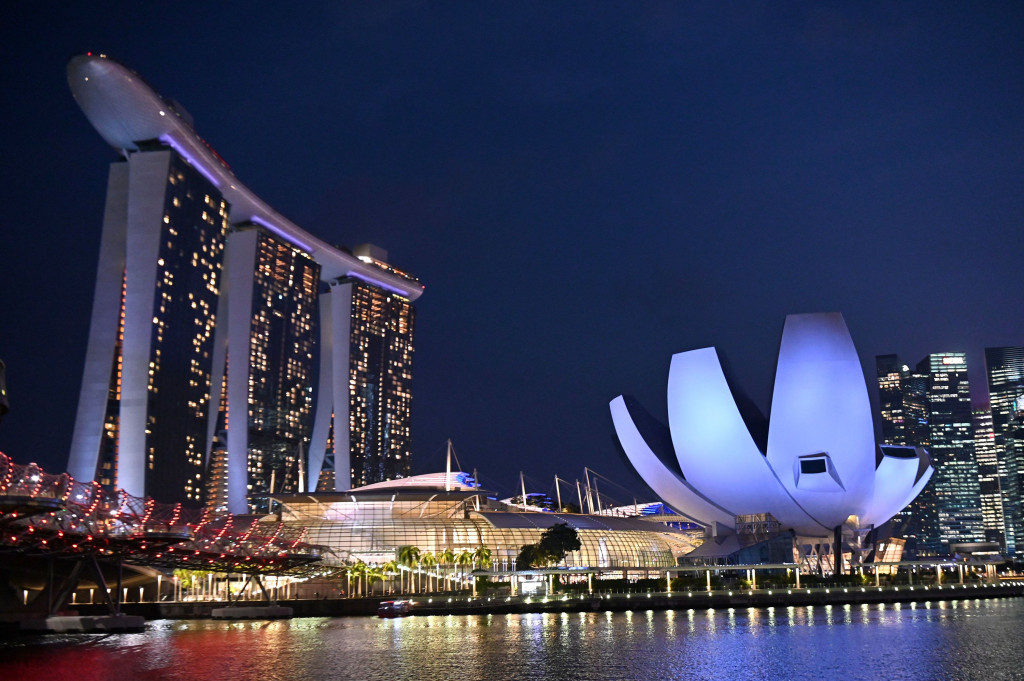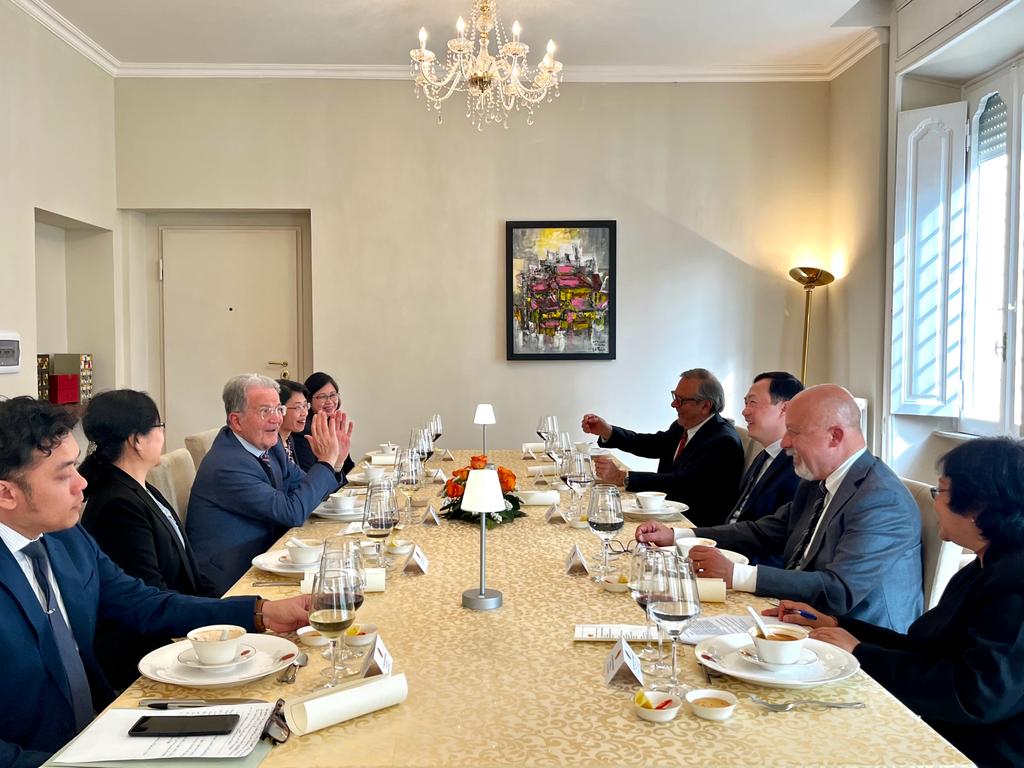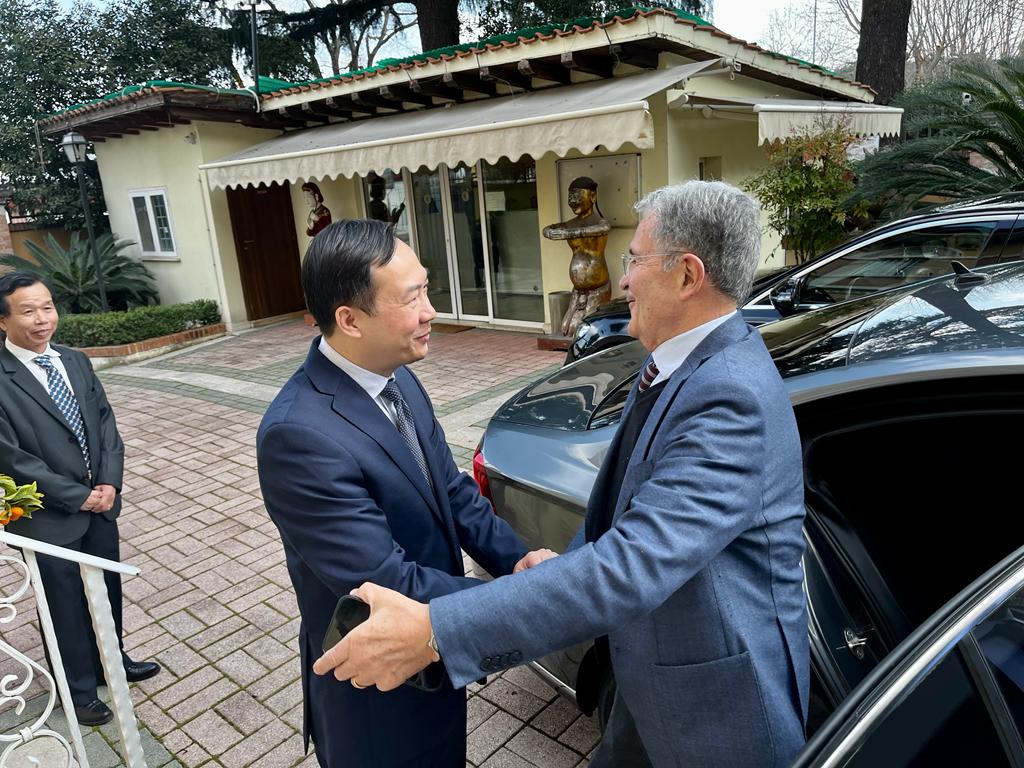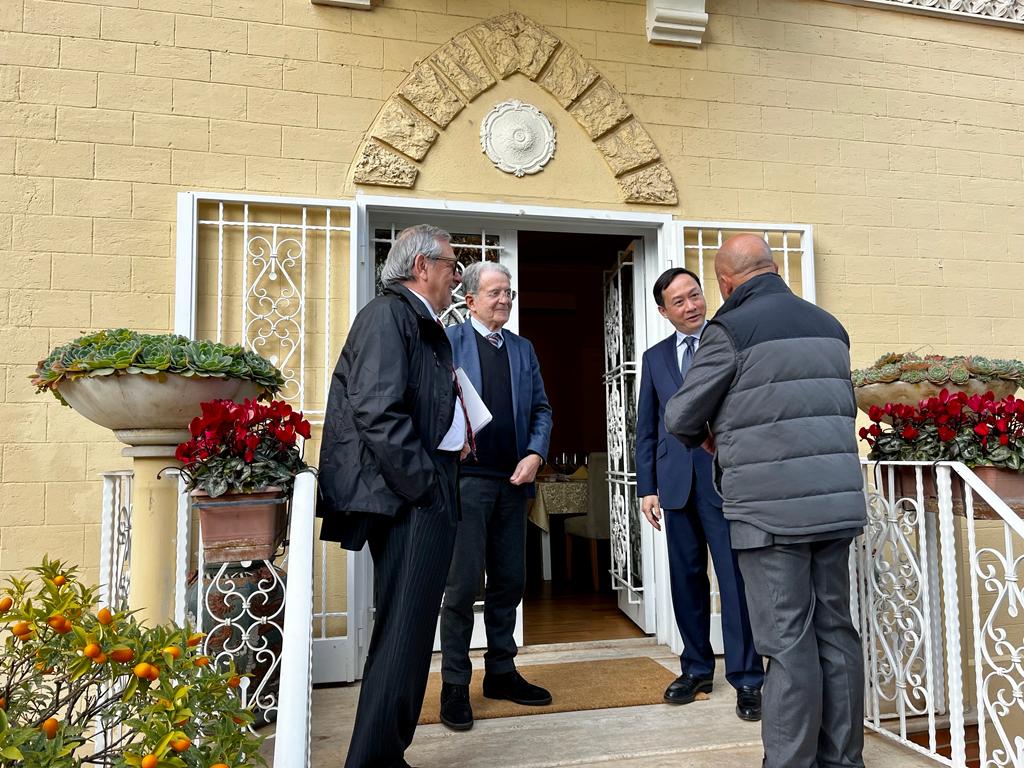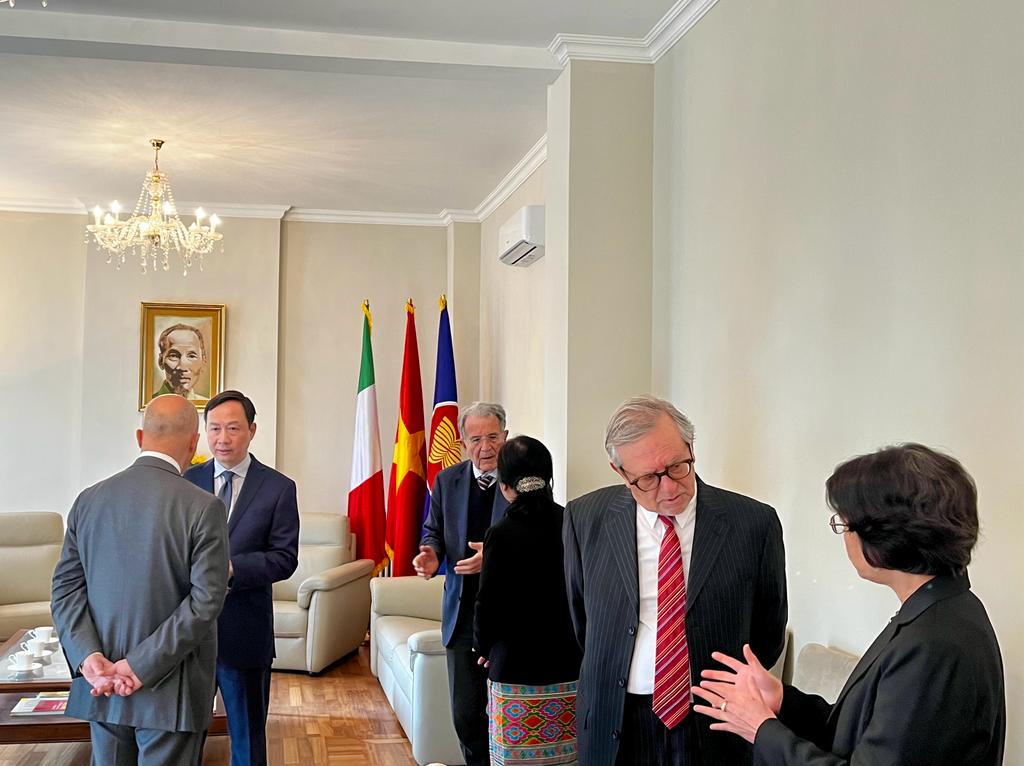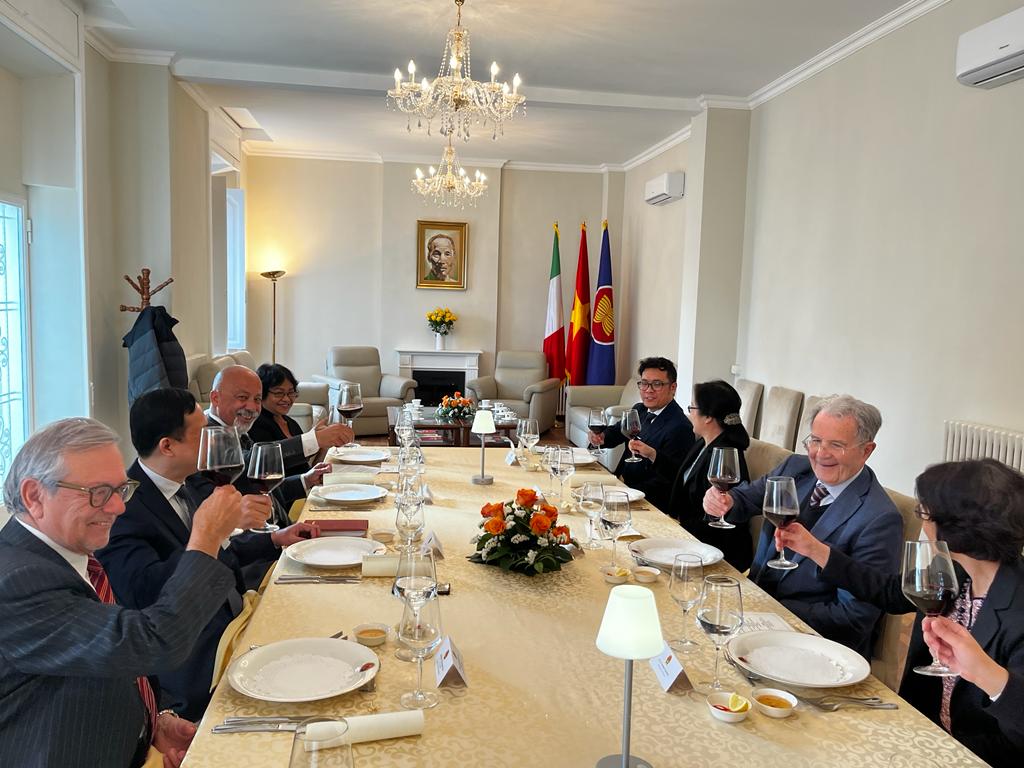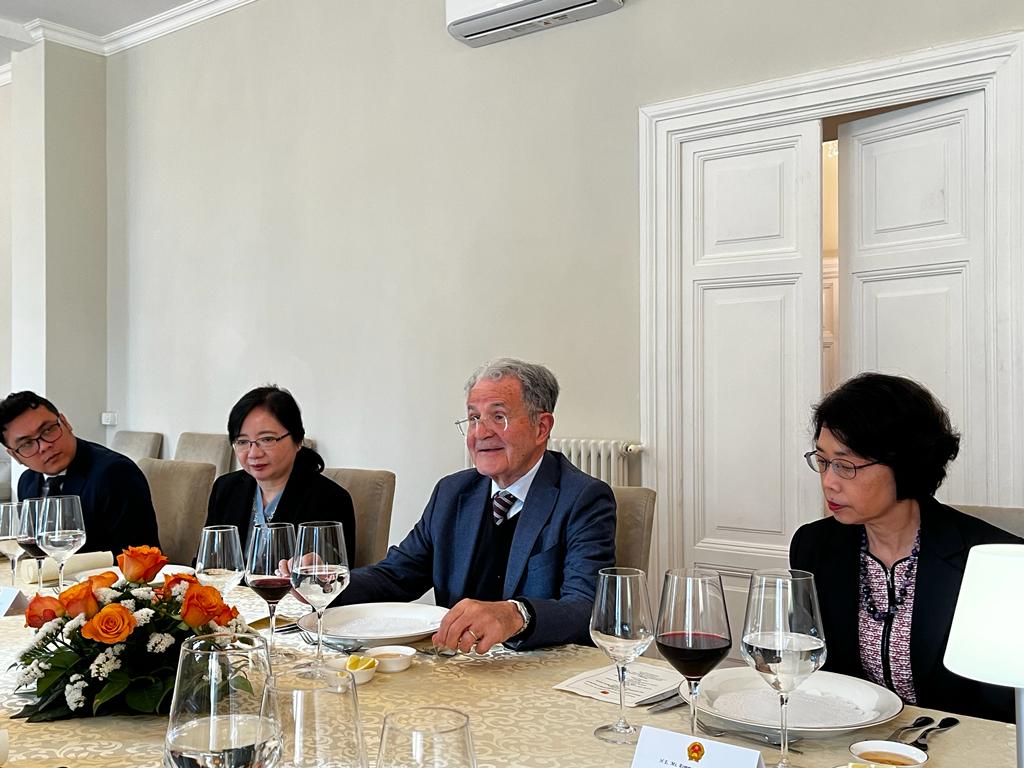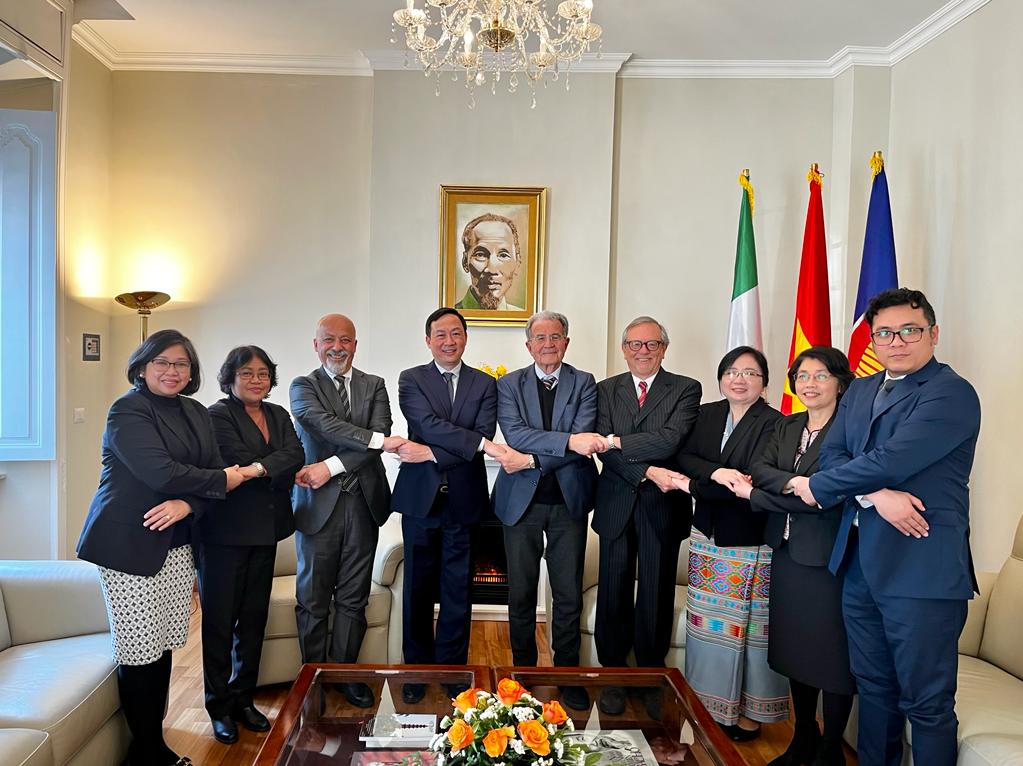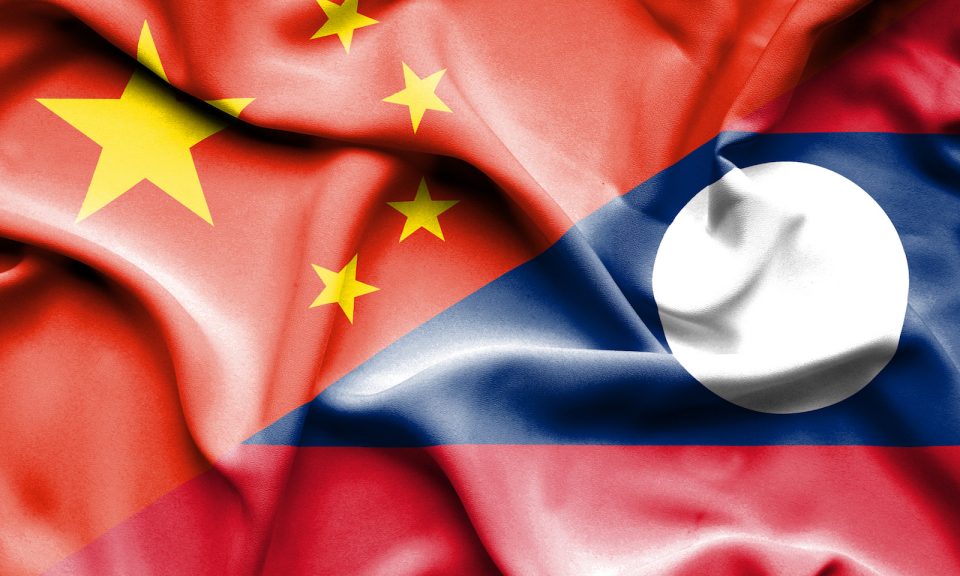On March 12, 2024, representatives of the Italy-ASEAN Association were heard at the Foreign Affairs Commission by the Standing Committee on Foreign Policy for the Indo-Pacific established at the Commission, as part of the fact-finding investigation on issues related to the projection of Italy and European countries in the Indo-Pacific. Ambassador Michelangelo Pipan, President of the Italy-ASEAN Association, and Romeo Orlandi, Vice President of the Italy-ASEAN Association, spoke. Translated with DeepL.com (free version)
Italy-ASEAN Virtual Learning Centre on Cultural Heritage and Sustainable Development
The International Conference "Italy-ASEAN Virtual Learning Centre on Cultural Heritage and Sustainable Development" was held in Hanoi with significant results. Dialogues on training for the sustainable development of cultural heritage' chaired by Ambassador Michelangelo Pipan, President of the Italy-ASEAN Association.
More and more wealth in Singapore
The number of family offices - companies that manage the lives and assets of the wealthiest clans - rose to 1,100 at the end of last year, from just 400 in 2020
Article by Tommaso Magrini
Singapore is getting richer. The assets managed by the city-state asset management industry have doubled in just six years, reaching about 4,000 billion dollars and about 80% of these assets are foreign. Blackrock Inc. is expanding into Singapore, as is the Ontario Teachers' Pension Plan. Swiss banks are also expanding: UBS Group AG’s offices dominate an entire block in a prominent shopping district, with a staff of 3,000, a private gym and a cappuccino bar. The rapid rise of money management is the result of a very specific project. In 2020 the government introduced a new type of legal structure, called a variable capital company, which provides tax and legal incentives to hedge fund, venture capital and private equity companies that settle in Singapore, similar to offshore hub programs. Since last October, more than 600 companies have benefited from the new program. Some of the world’s largest money managers have settled in Singapore, including Marshall Wace, Citadel Enterprise Americas of Griffin and D.E. Shaw. Billionaire Cohen’s Point72 Asset Management has expanded its Singapore team by over 50%, reaching 100 people. Overall, hedge fund assets grew by 30% in 2021, reaching $191 billion. The number of family offices - companies that manage the lives and assets of the richest clans - rose to 1,100 at the end of last year, from just 400 in 2020. Among the incentives to have contributed are the 2019 tax changes and a program that provides a fast track to residence for the ultra wealthy. Singapore is also benefiting from the willingness of several companies seeking diversification in the region or a basis for wider Asian operations beyond mainland China and Hong Kong.
L’Associazione Italia-ASEAN incontra l’ASEAN Commitee in Rome (ACR)
Romeo Orlandi: 'The value of consistency in corporate sustainability'
Romeo Orlandi attended a conference organised by Business International at Fiera Milano on 13 and 14 June. At the end of the event CPO (Chief Procurement Office) Vice-president of Associazione Italia-ASEAN gave an interview that we propose below.
Laos and China: closer than ever before
While Laos smiles at Beijing's investments in the country, Vientiane must pay attention to its debts.
Sixty years have passed since the beginning of diplomatic relations between Laos and China and the two countries are increasingly closer: Beijing is currently the most important foreign investor for Laos with almost eight hundred projects underway including highways, infrastructure and high- speed railways to be completed to improve the connectivity of the Southeast Asia State. The growth of Chinese investments in the country has been dizzying. While in 2003 they corresponded to less than 2%, in 2018 these had grown to 79% of total foreign direct investments in Laos.
Trade between the two countries has also seen a sharp increase in recent years: in 2019, compared to the previous year, trade between Beijing and Vientiane increased by 17%. A fundamental role in increasing economic relations between China and Laos is played by the Belt and Road Initiative (BRI) program. Laos plays a strategic role for China to allow direct and faster access to the countries of Southeast Asia, primarily to convey its products to Thailand. For these reasons, Beijing is investing in the construction of high-speed railways to allow greater and faster connectivity between the province of Yunnan and Vientiane.
At the moment, three projects regarding the construction of high-speed railways are particularly important for Laos: the Boten - Bokeo section of about 180 kilometres, the Vientiane - Pakse section and the railway that will connect Boten and Vientiane, the most ambitious and expensive project, part of BRI plan. While the Vientiane - Pakse railway will allow greater connectivity with the south of the country, allowing people to reach Pakse in seven hours compared to the ten hours it currently takes, the Boten - Bokeo project would allow Beijing to have rapid access to the north border of Thailand, in order to transport Chinese products to Bangkok more quickly. Finally, the rail section between Boten and Vientiane is almost ready, which cost six billion dollars and is the most expensive project ever built in Laos. The high-speed railway will be over 400 kilometres long, joining another railway segment already present in China and connecting the Laotian capital with Kunming, the capital of the Yunnan province. This project will not only allow a faster passage of products destined for the Laotian market but will also increase the number of Chinese tourists coming to Laos, as had already happened in the past when Boten was known as the "Golden City" due to the presence of numerous casinos that attracted Chinese and Thai tourists.
Beijing's interest in investments in Laos has meant that today the relationship between the two countries is rosier not just from a commercial but also from a political point of view. Vientiane is increasingly linked to Beijing, so much so that it recognizes and supports its political choices (it is no coincidence that last year, at the United Nations Assembly, Laos supported the national security law implemented by Beijing in Hong Kong). A further sign of closeness between Vientiane and Beijing came this spring, with the election of Khemmani Pholsena - the former Minister of Commerce of Laos and childhood friend of the leader Xi Jinping - to the role of advisor to President Thongloun Sisoulith. However, what seems to be a consolidated relationship aimed at increasing the economy of one of the poorest countries in the world (with the pandemic crisis, among other things, the country's unemployment rate has reached 25%) could hide a pitfall: the so-called debt trap. Laos' debts towards China correspond to over 400 million dollars, while the total amount of the country's debts corresponds to over 60% of GDP: if Vientiane finds itself insolvency, it could become a pawn for Beijing which it would have the right to redeem itself on the small state by obtaining control of some infrastructures in the country, as already risks happening elsewhere.
Il Vice Presidente dell’Associazione Italia-Asean, il Prof. Romeo Orlandi sottolinea quali siano le possibilità di investimento per le imprese italiane in Indonesia
Roma, 28 gennaio 2016. Il Prof. Romeo Orlandi, Vice Presidente dell’Associazione Italia-Asean è intervenuto all’evento organizzato dall’Ambasciata di Indonesia in Italia sulle relazioni bilaterali tra i due Paesi. In quest’occasione, il Vice Presidente Orlandi ha presentato un’analisi delle relazioni economiche tra Italia e Indonesia, soprattutto per il flussi commerciali e di business. L’evento è stato concluso da S.E. August Parengkuan, Ambasciatore d’Indonesia in Italia.


